
Publisher:
Bonnie King
CONTACT:
Newsroom@Salem-news.com
Advertising:
Adsales@Salem-news.com

~Truth~
~Justice~
~Peace~
TJP
Aug-29-2012 01:12

 TweetFollow @OregonNews
TweetFollow @OregonNews
Will UNHRC Initiatives End the Lankan Genocide Despite the Re-Invigorated South Block Captive India
Vssubramaniam Special to Salem-News.com(GRAPHIC PHOTOS) The end of Sinhala oppression is only feasible once its military occupation of the North is ended.
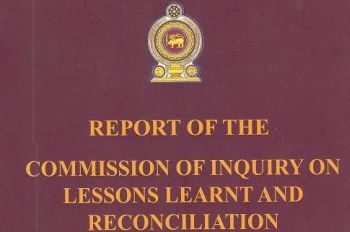 Special thanks to dbsjeyaraj.com and other sources for the graphic photos of the Tamil victims of state terror in Sri Lanka's north and east coastal regions in 2009. |
(COLOMBO, GroundReports) - Colombo boastfully hawks its National Action Plan (NAP) implementing all the inconsequentials in the Lessons Learnt and Reconciliation Commission (LLRC) proposals but omits the crucial political element. The NAP is a diversion to tire out the international community away from efforts to hold Lanka accountable for its grave crimes against humanity.
Once the NAP fails to provide the space to effectively deal with the crucial political component that led to the conflict in which Lanka committed the crimes, all the hog wash in LLRC and NAP to bring about long-term reconciliation and lasting peace in Lanka is no different from what the Sinhala regimes promised and never delivered for over the past six decades and allowed the oppression of the Eelam Tamils to continue without any redress. In summary the NAP here amounts to a ‘No Action Plan’.
Lanka devious efforts to evade UNHRC accountability have the support of the South Block captive Delhi/Sonia who also supported Lanka’s war overtly and covertly until the Tamils were defeated in May 2009. After that Delhi continues to support the Lankan genocide to eliminate the Tamil homelands from the Lankan soil completely by fighting international efforts through the UNHRC to bring Lanka before the courts for the crimes it committed. The lessons from Lanka’s war against Tamils is that lives of Tamils are at the Lankan mercy once the life saving umbrella that the LTTE provided was lost in May 2009.
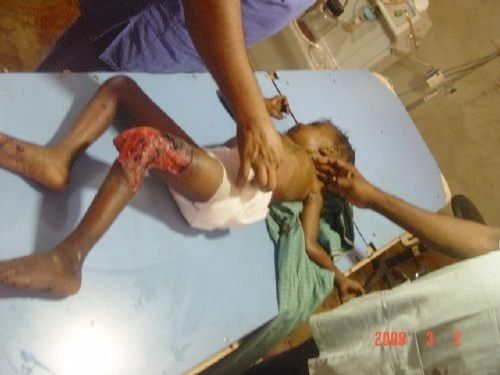
Mullivaykkal massacre is not the only killing in the war, there were many many more mini-Muliivaykal massacres and other killings details of which will surface only when independent international courts investigate. It is foolhardy to expect much from a LLRC or any locally appointed courts to investigate. Colombo and Delhi dread independent investigation by international courts; fearing dreadful and embarrassing cans of worms to appear.
Killings of Tamils though shocking to civil humanity is only one aspect of the Lankan genocide. It also involves other brutal forms of cruelty under Lanka’s official ‘winner takes all’ (Kohona) policy; it rapaciously snatches away from Tamils their homeland, assets, homes, land, livelihood and even human dignity (including the modesty of women) under the Sinhala supremacist’s military occupation. The why for the Delhi mandarins not for once condemning these brutal acts is difficult to fathom.
Such atrocities that cause distress to many do not stir the rock like hearts of the mandarins in Delhi. They observe a novel form of dharma under the label ‘secularism’ pretending to be neutral and not condemning the brutal killings and oppression right under its nose. Lankan genocide is now about ridding the Tamil homelands in Lanka.
This outrageous plan in action shocks all except the South Block mandarins and their captive UPA leaders. Delhi’s sneaky actions to hinder international efforts go beyond curbing the excesses of Lanka to redress the Eelam Tamil’s sufferings to the South Block instigating Delhi to sabotage international action to bring the Lankans to account for their crimes.
Shiv Shankar Menon is reportedly now the chief architect of the South Block policies. Every one of his visits to the Rajapakses is dreaded by the Tamils fearing what more brutal crimes this South Block emissary has planned for with his counter-parts to harm the Tamils in Lanka. The fear was born out of the South Block’s past record of the cozying emissaries who frequented Colombo to calibrate the Rajapakse devastating attacks on the LTTE.
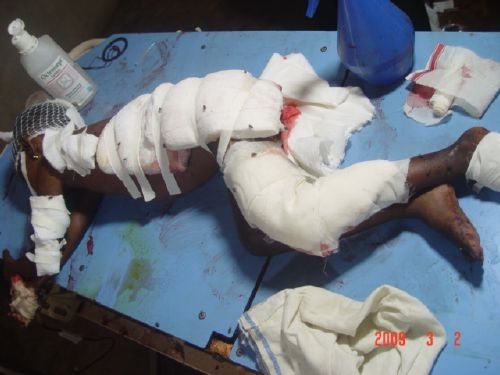
These produced the Mullivaykal and many mini-Mullivaykal massacres. Civilians were not spared. The Delhi trio was involved according to Gothbhaya Rajapakse in the Mullivaykal tragedy. Confirmation by independent agencies that the Delhi trio was deeply associated in the Lankan crimes using the ‘no fire zone’ to entrap tens of thousands for the kill and ‘barb wire fenced open air detention of over 300 000 displaced civilians whose release took as long as 3 years would be most embarrassing.
Though Gothabhaya openly hinted at the ‘in the loop’ involvement of the Delhi trio and Delhi’s astonishing stilled silence on this creates fears that the trio had a definite role in crimes. The ‘no fire zone’ and the ‘mass detention prisons’ are inerasable blots on the dharmic heritage of a great country though these were caused by its adharmic bureaucrats.
Hariharan a one-time hardcore anti-Tamil South Block apologist in ‘A tale of two interventions’ in Hindu 28 July and ‘25 years of India-Sri-Lanka Agreement in South Asia Analysis Group (23 April 2012) attempts to auction Delhi’s support for Lanka for the 13th Amendment as a bonanza to Eelam Tamils to restrain the restive Tamil Nadu (TN) Tamils from acting(despite Pranab’s 2009 ultimatum to Karunanithi not to) and precipitate a crisis that could have ended the UPA rule in May 2009 itself.
Hariharan rightly mourns the absence of a dynamic Indraji class national leadership who delivered a neat and clean Bangladesh for the oppressed Bengalis unlike a Sonia who is still struggling with the Rajapakses to implement its Indo-SL Accord 13th Amendment as a political solution to the Eelam Tamil issue. Sonia afflicted by a legendary South Block dependency syndrome is no match to Indraji who created Bangladesh to end Pakistan’ oppression of the Bengalese. Apparently Soniaji encourages through Delhi’s inaction the Rajapakses to kill off the rest of the Eelam Tamils, with it the Tamil homelands and Eelam Tamil problem.
The end of Sinhala oppression is only feasible once its military occupation of the North is ended. Bangladeshi was desperate for this in pre-1971 East Pakistan. NAP has no definite timetable for phasing out its military occupation of the North. Delhi’s Soniaji like Indraji has to create the equivalent of Bangladesh in Tamil Eelam, However on this Hariharan engages in semantics pointing to irrelevant differences between the oppression the Bengalese suffered and what the Eelam Tamils suffer from.
Hariharan stops at lament over the painfully slow Lankan substance less NAP roadmap to achieve the elusive ‘..rehabilitation and reconciliation’ in the war ravaged Lanka. It also offers no solution for Delhi to extricate itself from the South Block created imbroglio.
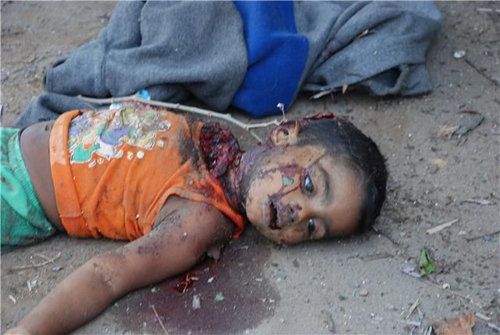
The logic that drives the excellent writings of the reputed independent political analyst (Dr Imityaz) ‘Sri Lanka: Ethnic Conflict, LTTE and Future ‘does not have the shortcomings found in Hariharan’s writings namely conflict of interest. “it is now crystal clear that the Sinhala leaders will never put forward a just resolution to the Tamil national question’ once they reject any form of devolution be it the federal or any other to accommodate Lanka’s cultural pluralism.
(thesundayleader 22 July 2012). Hence the NAP Sinhala solution is politically incorrect when ‘it demands a particular community to forcefully cohabit with the majority..without any space for political accommodation..more so for minorities who claim geographical domination in certain areas (Tamil homelands)’.
Instead Sinhala chauvinism is bent on altering the demographics to erase the existing geographical domination that some minorities have that protected their lives and identity when threatened in areas outside the North and East. For this reason many Tamils like Prabhaharan believe that uncompromising Sinhala chauvinism would never deliver justice to the Tamils out to destroy the territorial pluralism to end ethnic tensions not political autonomy.
Also the highly reputed independent intellectual Arundhadi Roy even months before the Mullivaykal pointed out that the Lankan genocide under way was causing ‘a colossal tragedy’(1 April 2009 in the Guardian). It did, the Mullivaykal massacres occurred soon after.
A remedy for genocides is deterrence; the international community holding Lanka accountable for its genocide crimes. The anti-Tamil prejudiced South Block Delhi and its apologist Hariharan do not rate the Rajapakses’ massacres as a ‘colossal tragedy’ as Arundhati does and to readily join up with the international community to bring Lanka accountable before the international courts.
How objective is Hariharan who at one time identified himself with the blatant anti-Tamil prejudiced the South Block to be compared to Arundhati who readily sees the ‘colossal tragedy’ occurring in Lanka. However the recent writings of Hariharan do appear to be more sober in their anti-Tamil rhetoric although Hariharan has not purged himself clean of his South Block lineage and policy bias.
The outright prejudiced anti-Tamil views of Hariharan were analysed by this author in ‘Some thoughts on LTTE’S military response by Hariharan – a critique’ in Sulekha.com 4 August 2008. Hariharan’s two recent pieces refer to ‘the Tamil resistance (LTTE) in milder terms as ‘affected communities (not the customary reference to them as ‘terrorists’) rising up to fight their states’.
This is a change for the better perhaps out of sensitivity for the sufferings of the Eelam Tamils but clearly to alleviate the pain Delhi endures in explaining to the world why the 13th Amendment along with the 1987 Indo-SL Accord it promised to the Tamil is held in limbo and possibly destined to ‘the archives’. The Lankan obduracy is most painful to both Delhi and Hariharan. Delhi divesting the influence of the South Block activists from Indo-Lanka policy making in becoming a necessity.
Hariharan’s analysis of the events leading to the Indian interventions in Bangladesh in 1971 and in Lanka 1987, referred to events that ‘preceded by the affected communities rising up to fight their state forces and omits the use of the much maligned word ‘terrorism’.
He refers to the Tamil resistance (LTTE) in the same breath he refers to the respected Mukti Bahani fighting oppression. Hariharan does not peddle South Block Delhi’s stock in trade ‘sovereignty’ or ‘close friendship’ platitudes to explain India’s reluctance to intervene in Lanka but reminds Indians that ‘ ..India has sent a strong message in power assertion in South Asia and the nation applauded the achievement. .. The Indo-SL Accord sent home a strong message to all stakeholders; India would not ignore strategic developments in its close proximity in Sri Lanka, and would support the minority demand for an equitable deal. The most significant achievement of the Accord was the introduction of the 13th Amendment.. which provided a degree of autonomy to the newly created provinces?
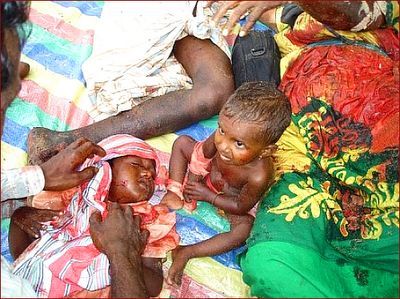
And it still exists as the only constitutional tool available to redress Tamil grievances…The Accord failed to achieve its strategic goals in full. The devolution of powers to the Tamil minority promised in the Accord retains the potential as an instrument of Indian influence in the region..What India does not have is a dynamic national leadership.’
Hariharan has to be applauded here for reminding others India’s power assertion experience to produce a salutary effect especially when the Rajapakse appeasing South Block captive Sonia leadership is feeling the political earth beneath moving under for UPA Delhi. Dehi’s inaction on implementing the 13th Amendment is bound to continue to as Lanka plays truant with a meek and corrupt Delhi that most Indians now detest.
That Hariharan downplays the sovereignty logic in the context of India’s power assertion for Delhi’s failure to intervene when the massive Mullivaykal massacres occurred in May 2009 suggests Delhi’s serious concerns over the damage caused by the Narayanan/Menon ‘in the loop’ advisory/ supportive roles that led to the massacres.
The Rajapakses play hard ball to test the extent to which Delhi would go to save the Delhi trio and consequently in its own image on account of the involvement (direct or indirect) in the notorious Mullivaykal massacres. Lanka’s snub by refusing to implement the ‘made in India’ 13th Amendment amounts to Lanka playing brinkmanship against Delhi. South Block/Sonia club worked scrupulously to restrain Delhi from censuring the perpetrators (the Rajapakses) for the massacres purely to avoid Indian public pressure building up not merely in TN but India wide for Indian intervention.
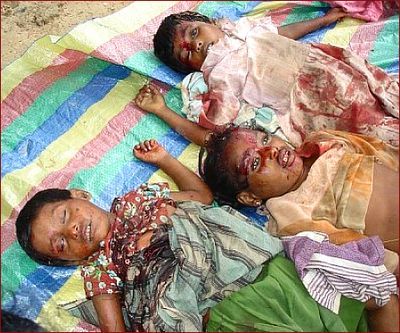
Accordingly Hariharan is forced to blame the absence of a ‘dynamic national leadership’ for the colossal tragedy to occur under Delhi’s eyes. Indraji would have intervened in Lanka many years earlier, saved the massacred Tamils and created an Eelam state in the same manner she created a neat and clean Bangladesh. Even in post May 2009 the leadership in Delhi fell far short of Indraji’ caliber.
Rajapakses is taking advantage of Delhi’s weakness stalling in implementing the Indo-SL Accord including the 13th Amendment to create the present impasse. Delhi has good grounds to suspect the role Menon played when he visited Colombo last.
Eelam Tamils including perhaps Prabhaharan would have trusted the 13th Amendment feeling safe under an Indraji regime (not under South Block manipulated Rajiv) acting to protect the lives of Tamils.
Hariharan’s yearning over the absence of a dynamic national leadership condemns the present meek leadership and obligated to appease the Rajapakses preventing India from returning to ‘power assertion’; that is a legitimate expectation of patriotic Indians.
Sinhala leaders and apologists have not reacted kindly to Hariharan’s recent thinking. In following the Rajapakse line, in a piece ‘It is time to abrogate the 13th Amendment’ in the Nation.lk an apologist quotes Hariharan expensively to ridicule Delhi’s professions of friendship (sugar coated silly terms) to mask Delhi’s intervention as an instrument of Indian influence in the region..“India lovers have bent backwards to tell Sri Lankans that India is a friend and was here to help us.’ Instead Hariharan concedes that it was not a love affair, but one informed by strategic goals.
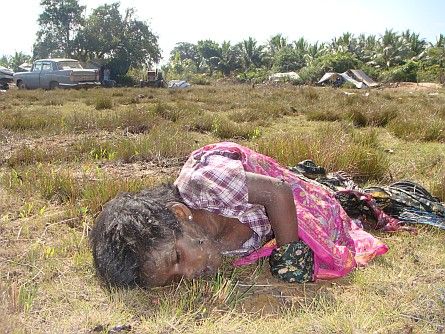
“Hariharan laments that the Accord failed ..the devolution of powers to the Tamil minority promised in the Accord remains unfulfilled despite the 13th Amendment . But the Accord retains the potential as an instrument of Indian influence in the region’. According to the Sinhala apologists the 13th Amendment helped to legitimize Eelam mythmaking, turning randomly drawn provincial boundaries into territories of a fictional homeland.
‘The debate should not be about 13 plus or minus, but when (and not if) the 13th will be abrogated. ..Fiction doesn’t help. The 13th Amendment caused blood to flow. Our children need not bleed to keep alive that discredited document and certainly not to satisfy India’s strategic interests. China uses this line of argument in its border disputes with India claiming that the randomly drawn boundary lines are not real boundaries between India and China. Wars were fought over these boundaries and blood flowed in consequence.
The Rajapakses’ open and subtle wars are about erasing the ‘Tamil homelands’. Apologists like Dayan Jayatilleke a Ph.D from Griffith, Brisbane in his Critique of Political Fundamentalism in Sri Lanka uses semantics to masks his lackluster intellectual credentials and strongly argues against any accommodation with Tamils, especially over the mythical Tamil homelands. P Ivan claiming (Delhi 13 Plus that the Tamil homelands are a myth’ that the myth behind Tamil homelands makes all the debate about devolution and the 13th Amendment a futile exercise. With such obstinacy from the Lankan side is Hariharan or Delhi wasting their time without asserting its power position?
Delhi’s and Hariharan’s enigma, the absence of progress on the 13th Amendment more so after Delhi invested heavily on the 13 Amendment (ExpressBizz 29 Jun 2012) promising a political solution to the Eelam and TN Tamils. On the basis of Delhi’s promise the South Block trio visited Colombo frequently claiming to protect the lives of Tamils but in the end they it turned out to be plots to support SL genocide using massacres to weaken the Tamils.
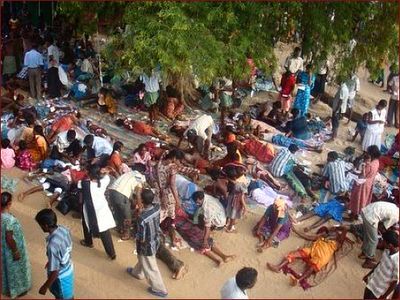
Narayanan’s ‘no fire zone’ was a death trap to kill tens of thousands civilian Tamils. Hariharan has almost given up on the 13th Amendment with an outspoken Sonali Waduge (a close associate of' 'tom tom' Raman) in ‘How India and Sri Lanka Handle the Headache of Tamil Eelam’ in Eurasia Review June 30 to make an outrageous statement ‘No country treats the natives of another country (who came with Cholas/Pandyan armies as far back as the 5th century) TN/India that invaded (over a thousand five hundred years ago) as equals’.
She further states ‘If India claims to have chipped in to help in the final stages of the war in 2009..the plan has everything to do with choking the Sinhalese leadership into eventually annexing Sri Lanka on the pretext of looking after the welfare of the Tamils.’ Do these words express the deep feelings of friendship that Lanka has for Indians; words that Manmohan and S M Krishna shamelessly repeat as mantras to the Indians.’
For a fuller discussion on Delhi’s dilemma, readers are encouraged to read the authors ‘Does Delhi needs to appease Sri Lanka any further..’ in groundreport July 08. The fear that all Tamils and the majority of Indians have is the pitifully meek UPA Delhi flagging the irrelevant 13 Amendment allowing Lanka keen on buying time to plant sufficient Sinhalese to deprive the Tamils of their homelands and ‘do nothing’ to redress the Tamils core fears; which is their lives, livelihood, Tamil homelands and identity.
Hariharan mourning the absence of a dynamic national leadership at this juncture to save the 13th Amendment also calls for India’s power assertion in the region. In effect he is yearning for a change in leadership away from UPA for India to go back to its assertive leadership role. The UPA has failed on all fronts to bring India to such a parlous state that the puny Lanka rubs it nose at Delhi all the time.
First published here: groundreport.com/World/WILL-THE-UNHRC-INITIATIVES-END-THE-LANKAN-GENOCIDE/2947502
Special thanks to GroundReport.com
 |
 |
 |
 |
 |
 |
 |
Articles for August 28, 2012 | Articles for August 29, 2012 | Articles for August 30, 2012
Quick Links
DINING
Willamette UniversityGoudy Commons Cafe
Dine on the Queen
Willamette Queen Sternwheeler
MUST SEE SALEM
Oregon Capitol ToursCapitol History Gateway
Willamette River Ride
Willamette Queen Sternwheeler
Historic Home Tours:
Deepwood Museum
The Bush House
Gaiety Hollow Garden
AUCTIONS - APPRAISALS
Auction Masters & AppraisalsCONSTRUCTION SERVICES
Roofing and ContractingSheridan, Ore.
ONLINE SHOPPING
Special Occasion DressesAdvertise with Salem-News
Contact:AdSales@Salem-News.com

googlec507860f6901db00.html



Terms of Service | Privacy Policy
All comments and messages are approved by people and self promotional links or unacceptable comments are denied.
[Return to Top]
©2025 Salem-News.com. All opinions expressed in this article are those of the author and do not necessarily reflect those of Salem-News.com.